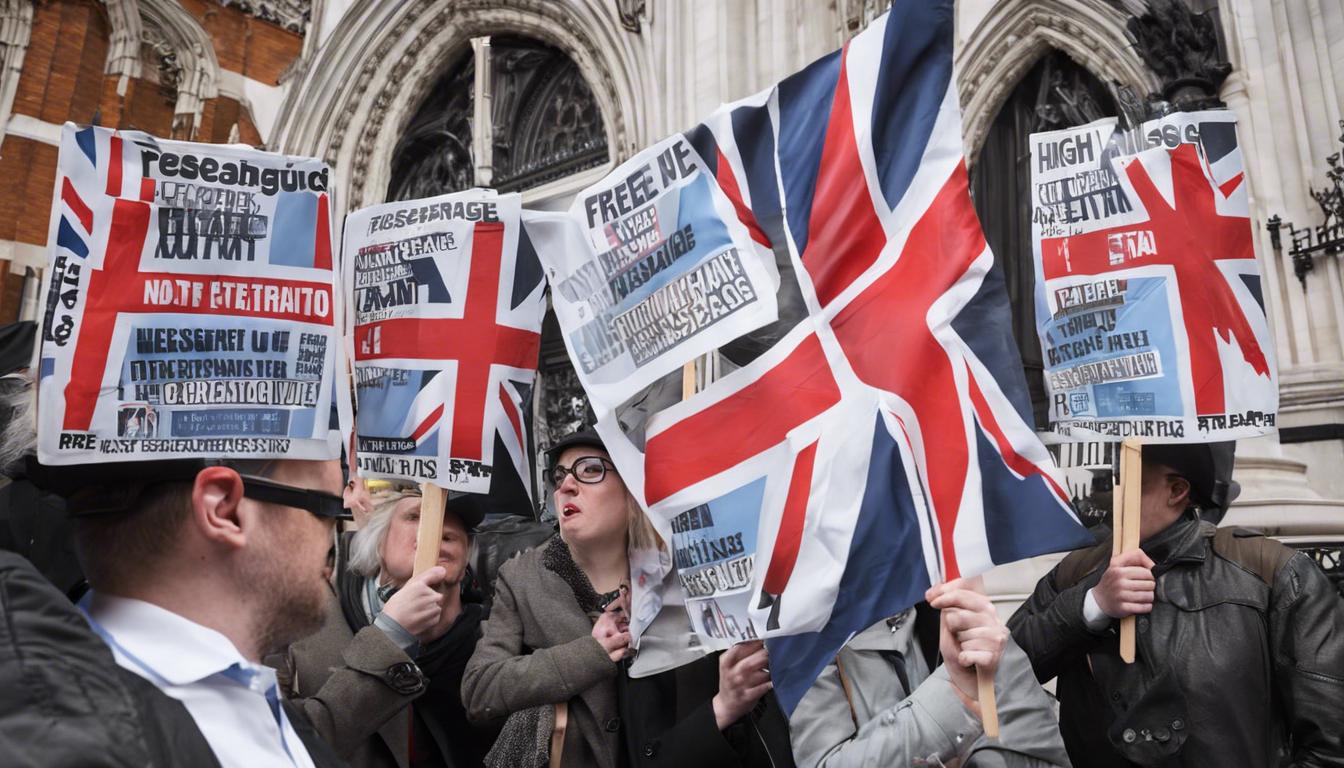As Julian Assange’s legal team contests his extradition to the US on the eve of a critical ruling, the world watches closely, recognizing the case’s profound implications for journalistic practices and the principles of public interest.
In anticipation of a critical ruling on Julian Assange’s extradition appeal, supporters congregated outside the UK high court. Assange, the founder of WikiLeaks, is contesting extradition to the United States, where he faces charges related to the publication of classified documents in 2010 and 2011. His legal representatives argue that the extradition would contravene the UK-US treaty, emphasizing the case’s implications for journalistic practices and public interest.
The two-day hearing in London centered on Assange’s request to appeal a 2022 decision endorsing his extradition. His defense highlighted concerns of “state retaliation” and potential injustices if extradited. The US, conversely, maintains that Assange’s actions compromised the safety of its agents and accuses his team of misrepresentation.
Should the appeal be denied, Assange’s legal avenues within the UK might be exhausted, leaving the European Court of Human Rights as a possible last-resort option. Facing up to 175 years in prison if extradited, Assange’s situation remains a point of contention, with uncertainty still surrounding the US government’s position despite rumors of a potential plea deal.
Dame Victoria Sharp and Mr. Justice Johnson are set to deliver their verdict on Tuesday, determining whether Assange can pursue his final UK appeal against extradition. During a February hearing, Assange’s lawyers contended that the US prosecution is politically motivated, making extradition illegitimate. Clair Dobbin KC, representing the US, focused on Assange’s alleged misconduct as grounds for extradition.
Assange, indicted on 17 espionage charges and one computer misuse charge, is accused of collaborating with US Army intelligence analyst Chelsea Manning to leak classified documents. His defense frames him as a journalist exposing military abuses, while the US claims his actions recklessly endangered lives.
Assange has spent the last five years in a high-security British prison, with his family and supporters expressing concern over the toll on his health. The forthcoming ruling could either signal the end of Assange’s prolonged legal battle in the UK or extend his fight against extradition, underscoring the case’s broader implications for press freedom and national security.













